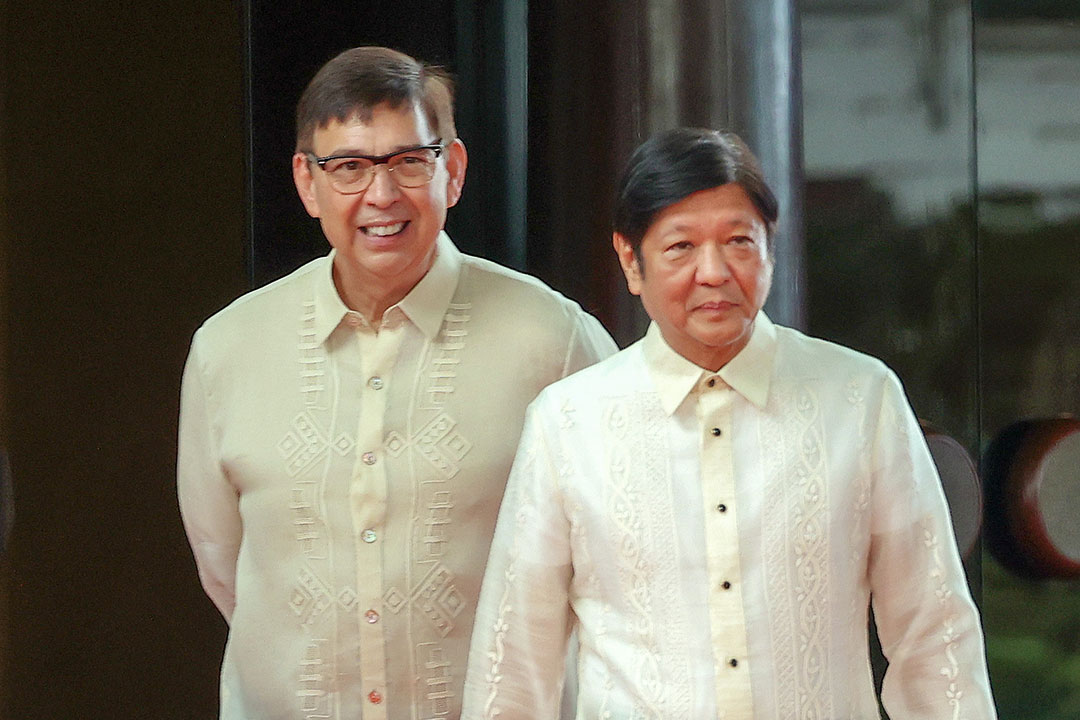
By Luisa Maria Jacinta C. Jocson, Reporter
THE Department of Finance (DoF) decision not to introduce new taxes this year points to a focus on improving tax collection efficiency and providing relief to the public, though it runs the risk of failing to raise sufficient revenue, analysts said.
“No new or additional tax this year is a brilliant move,” Bienvenido S. Oplas, Jr., president of a research consultancy and of the Minimal Government Thinkers think tank, said in a Viber message, noting that tax hikes have short- to long-term inflationary impact.
Finance Secretary Ralph G. Recto has said he does not plan to introduce any new taxes, citing the need to minimize inflation and improve tax administration.
“The focus on improving tax administration is also good. High incidence of smuggling and illicit trade is a clear example of poor tax administration…so this is a good fiscal consolidation measure,” Mr. Oplas said.
Albay Rep. Jose Maria Clemente S. Salceda earlier estimated that taxes forgone from tobacco smuggling at P60 billion in 2023.
“It is also prudent first to maximize tax revenue collections from existing tax laws and intensify compliance as well as encourage the payment of the right taxes, before adding new tax laws or raising tax rates,” Rizal Commercial Banking Corp. Chief Economist Michael L. Ricafort said in a Viber message.
Mr. Ricafort said that new or higher taxes may be considered once inflation is no longer a risk.
“Inflation has been the priority for more than a year already. It is a tough balancing act in fulfilling the mandates of price stability and fiscal performance sustainability in terms of increasing recurring sources of revenues for the National Government while also having more disciplined government spending through good governance standards,” he added.
Headline inflation averaged 6% for 2023, slightly higher than the 5.8% in 2022. This also marked the second straight year that inflation breached the central bank’s 2-4% target band.
Filomeno S. Sta. Ana III, coordinator of Action for Economic Reforms, said that optimizing tax collection may not be enough to generate much-needed revenue.
“Tax administration by itself will not significantly boost tax effort especially in the short term. We tried that route before but it was not responsive to the problem especially when the fiscal space is a binding constraint,” he said via Facebook Messenger chat.
Mr. Recto has said that the DoF is currently working on tweaking current tax proposals to make them fairer and easier to collect.
In particular, Mr. Recto said that the department fine-tuned proposals for the motor vehicle user charges (MVUC) reform and the Passive Income and Financial Intermediary Taxation Act (PIFITA).
He noted that other priority tax proposals will be “more or less be the same,” such as the rationalization of the mining regime, the tax on single-use plastics, and value-added tax (VAT) on digital service providers.
However, the Finance Secretary also said that revenue gains from priority tax reforms are expected to be lower than initially projected.
“The revenue gains we will frontload. The revenue losses we will backload,” Mr. Recto told reporters on the sidelines of an event Friday.
The DoF estimates that revenue from the PIFITA will yield P12.2 billion between this year and 2028. Earlier projections had estimated revenue at P21.2 billion between 2024 and 2026.
The PIFITA seeks to “encourage growth in key financial markets by simplifying the tax structure on passive income, and on certain instruments and other financial products,” the DoF said in an earlier statement.
“Under the proposal, the DoF seeks to maintain the structure of some products and instruments while deferring the implementation of certain provisions by 2028 or when the government will have been in a better fiscal position,” it added.
Mr. Recto said the DoF has also fine-tuned the MVUC proposal to “consider the impact of the new rates on inflation, particularly in the transportation and logistics sectors.”
The reform is expected to raise P36 billion between 2024 and 2028. This is lower than earlier estimates of P46.8 billion for 2025 to 2026.
The rationalization of the mining fiscal regime will help “encourage growth in the sector while ensuring that the government still gets its fair share of the profits from mining activities.”
It is estimated to generate P47 billion in incremental revenue between 2024 and 2028. Previous projections indicated that the reform would generate P52.6 billion between 2025 and 2028.
The DoF hopes to raise P4.3 trillion in revenue this year.
Meanwhile, Mr. Recto said that there has been interest from investors in the Maharlika Investment Fund (MIF).
He and the rest of the Maharlika Investment Corp. (MIC) board met last week. “We are still organizing. I think it will take time… There seems to be interest in investing in Maharlika from what I’ve heard. There are potential investors,” he said.
In a statement on Sunday, the DoF said the board approved the remittance of funds from the account of the Bureau of the Treasury (BTr) to the sovereign wealth fund.
“The BTr shall transfer the contributions to the account of MIC within five business days from receipt of the relevant Board Resolution,” it said.
The MIC has an authorized capital stock of P500 billion. Initial capital of P125 billion will be provided by the Land Bank of the Philippines (LANDBANK) and Development Bank of the Philippines (DBP), which will supply P50 billion and P25 billion, respectively. The National Government will also contribute P50 billion.
Both state banks remitted their contributions to the sovereign wealth fund to the BTr last year.
“The Board likewise approved the motion to appoint the LANDBANK and DBP as depository banks of the MIC which is consistent with DoF Department Circular No. 002.2022 stating that GOCCs (government-owned and -controlled corporations) may deposit and maintain government funds with the two banks without the need for prior approval from the Secretary of Finance,” it added.
The fund will prioritize investments in infrastructure, oil, gas, and power, agroforestry industrial urbanization, mineral processing, tourism, transportation, and aerospace and aviation.
“The commercial objective of the MIC is geared towards obtaining optimal absolute returns and maximizing financial gains on its investments in the short to medium term,” the DoF said.
“In the long term, the developmental objective is to promote economic development by making strategic and profitable investments in key sectors,” it added.
The MIC Board is set to meet again in February.



